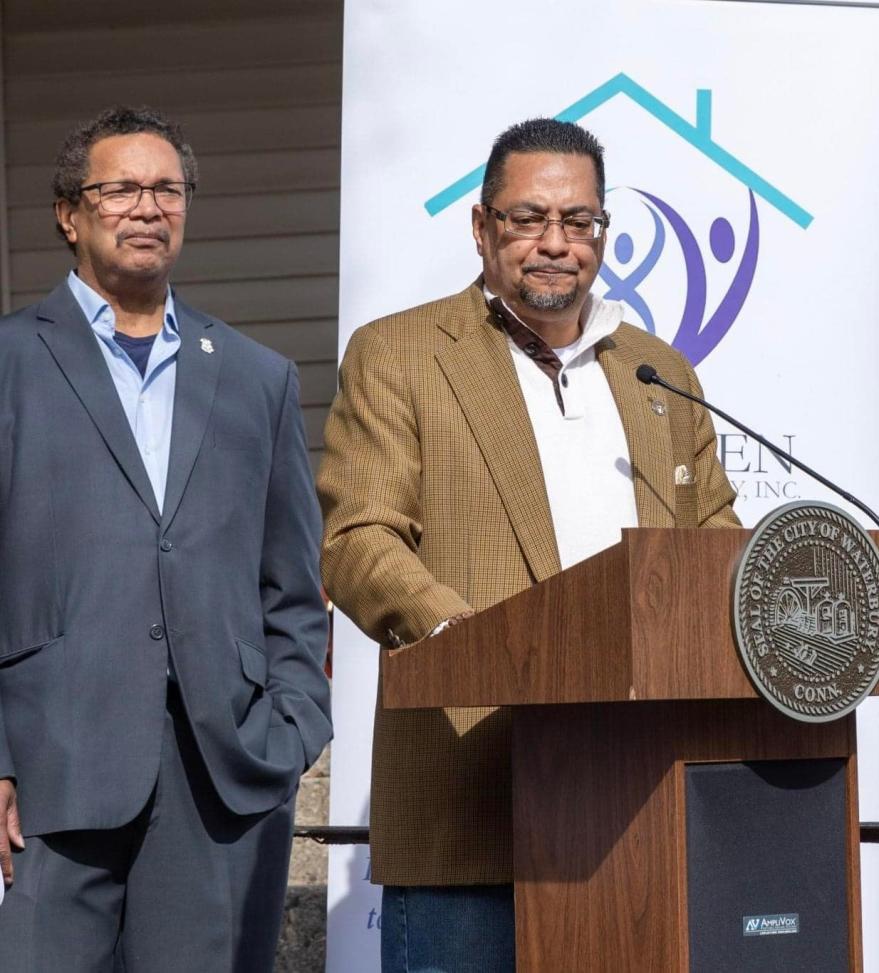Supporting Governor Lamont's Proposal to Address Domestic Violence

On Tuesday, I joined Lt. Governor Susan Bysiewicz in Waterbury together with the Connecticut Coalition Against Domestic Violence and elected officials to praise Governor Ned Lamont’s $18 million proposal to fill a gap in victim services and expand emergency housing assistance for survivors of domestic violence.
These shelters and services are a lifeline for many people. If victims can get here, places like Safe Haven can help save their life. I don’t talk about it much, but my mother was a domestic violence survivor. As a young child, about 9 or 10, it’s hard to grasp. Domestic violence is real, I have experienced it, and I thank the Governor for this proposal. It has my full support.
One part of the proposal would allocate $15 million in federal American Rescue Plan Act (ARPA) for the Judicial Branch Office of Victim Services to fill the gap created reductions in federal Victims of Crime Act (VOCA) assistance, a major funding stream for several victim services organizations across the U.S.
If the above ARPA proposal is authorized by the General Assembly, the Coalition Against Domestic Violence (CCADV) would receive approximately $4 million for the Safe Connect program and for services to victims of family violence. The total budget investment would enable a wide array of victim services organizations to provide assistance with basic needs, safety planning, crisis counseling, mental health treatment, and other services.
The second part of the proposal would allocate an additional $3 million in ARPA for pandemic-related domestic violence victim needs, such as hoteling, food, transportation costs, basic needs, childcare assistance, housing, moving, utilities, and furniture assistance.
If this funding item is authorized, the Department of Social Services would expand its contract with CCADV to increase and expand services. The COVID-19 pandemic has aggravated conditions — including isolation, insecurity, and stress — that place victims at heightened risk. It also has erected barriers to make it more challenging for victim services organizations to reach people in need of assistance.
In Connecticut, nearly 40,000 victims reach out each year to CCADV and its 18 member organizations for help. These organizations provide critical support to victims including counseling, support groups, emergency shelter, court advocacy, safety planning, and lethality assessment, among other services.





